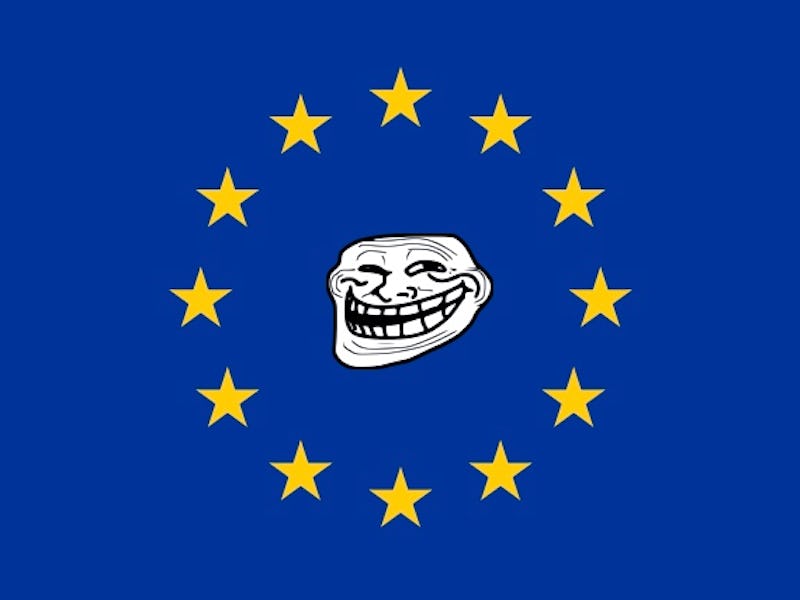Can the EU Really Ban Memes?
Not all of them, but probably your favorites.

The European Parliament Committee on Legal Affairs passed Articles 11 and 13 of the copyright reform, which critics say will effectively ban memes on the internet.
As you can guess, this is an incredibly controversial move with a lot of moving parts. If everything in the articles makes it onto the voting block, it would severely hamper free exchange of news and memes on the European internet. Article 11 proposes to establish a tax on hyperlinks with journalistic content, requiring anyone who publishes those links to pay. Article 13 would require platforms to heavily monitor their users and filter any submissions that could violate copyright infringement.
That means no more memes of Kim Kardashian, Rick and Morty, Drake, and basically anything else that isn’t free domain. Bummer, I know.
What Does This Mean for Me, an Intellectual Meme Lover?
For now? Nothing, but it’s still cause for worry. All the committee vote does is move the proposals forward into the next step of the legislative process. However, it was adopted with a 15:10 split, meaning it has a good shot at passing into law.
The measures can be softly contested through plenary, which would require all 751 members to vote instead of just 25. Sure enough, that’s what the opposition is planning on doing.
In the event that all this passes, we don’t know how exactly it would play out. Members of the EU Parliament are polarized on the issue. Julia Reda of the awesomely named Pirate Party said it would be a disastrous move that would kill small publishers and stifle innovation. Axel Voss, the EU rapporteur leading the copyright reform, counters that many concessions have been made since the articles’ inception and claims that most platforms wouldn’t be affected.
How Would It Be Enforced?
The European Union would order platforms like Google (that means YouTube as well) and Facebook to monitor for content that would violate European copyright law, which is a lot more strict than American copyright laws.
In American law, the Communications Decency Act, Section 230 has allowed our corner of the internet to thrive. Section 230 states that platforms aren’t liable for any defamatory or offensive content that gets posted on their sites, shielding corporations from millions of potential lawsuits. Of course, that ended up biting us in the ass, but Section 230 is also why the internet is the massive, ubiquitous network it is today.
If Article 11 and Article 13 are passed, a platform would have to monitor for any copyright violations made by posters and stamp them out. How stringent that policing will be, we don’t know.
How Are People Responding to This?
With memes, of course.
Credit: Anonymous, Disney
Credit: Anonymous, Disney
And organizing.
Dozens of activists and internet pioneers have sent an open letter to European Union Parliament president Antonio Tajani. Among them include lawyer Tim Wu, Wikipedia co-founder Jimmy Wales, and even Tim Berners-Lee, the dude who literally invented the World Wide Web.
With net neutrality dead in the United States and China using big data to institute social credit scores, the EU copyright reform is just the latest example of lawmakers restricting individual freedom on the internet. All of these policies are shifting more power onto corporations and states at the expense of private citizens. Not even memes are safe.
Alas, at least we’ll still be able to enjoy memes from non-copyrighted material, like these adorable puppies befriending a baby sloth.